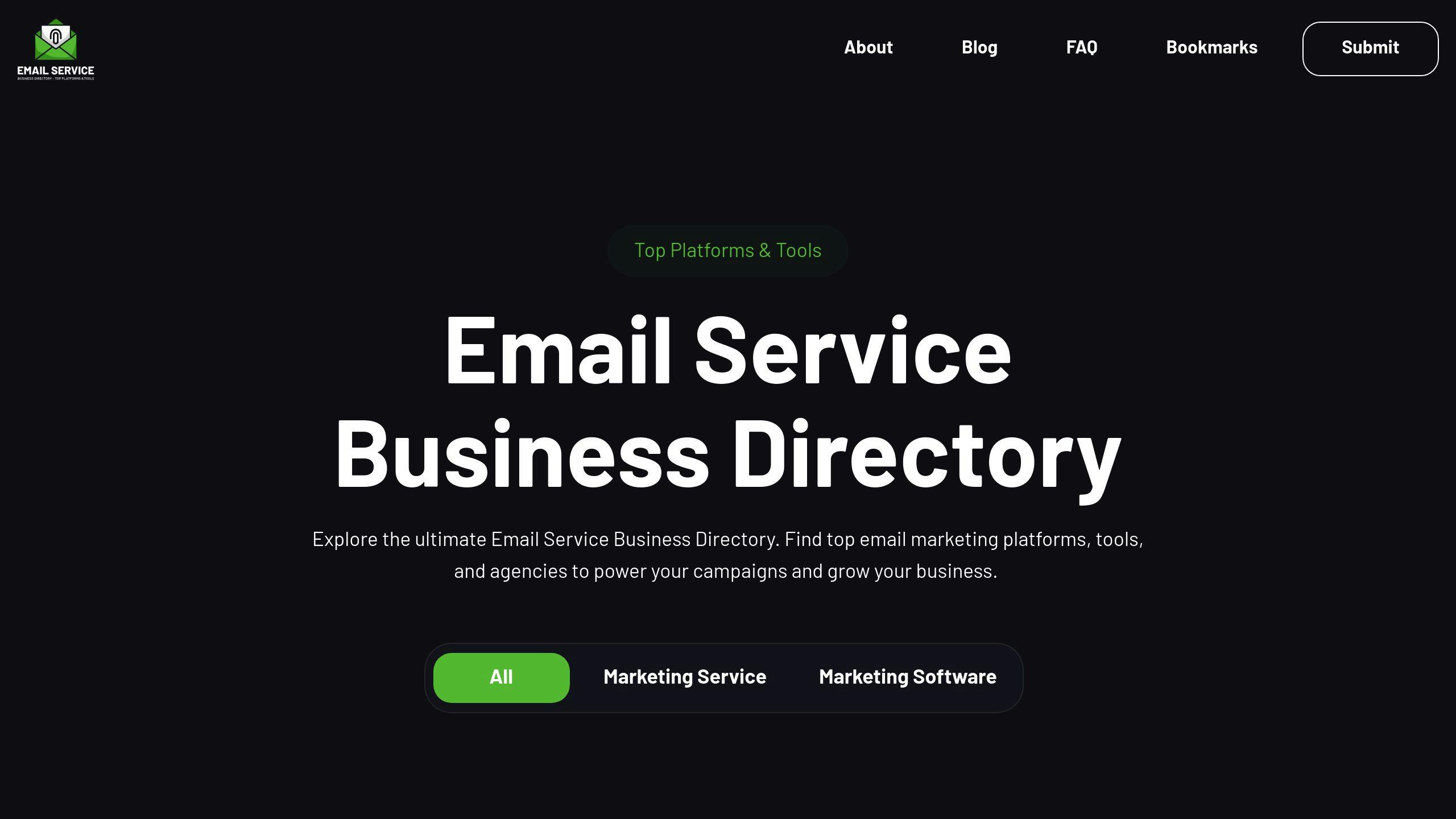Email marketing thrives on personalization, but privacy concerns and regulations like GDPR and CCPA make it tricky to get right. Here's what you need to know:
- Why it matters: Personalized emails increase click-through rates by 14% and conversions by 10%, but mishandling data can lead to fines and damage trust.
- Challenges: Balancing tailored content with user privacy requires careful data collection and compliance with strict laws.
- Solutions:
- Get clear consent before collecting data.
- Only gather essential information (e.g., name, email, purchase history).
- Use strong security practices like encryption and audits.
- Focus on segmentation to create relevant content without overstepping.
- Tools: Platforms like Mailjet and Zoho Campaigns offer privacy-first features for secure and compliant email marketing.
Mastering GDPR Compliance with an Optimized Preference Centre
The Challenges of Combining Personalization and Privacy
Balancing personalized email campaigns with protecting customer privacy is a tough task for today's marketers. Personalization boosts engagement, but stricter data protection rules mean marketers must carefully manage how they gather and use customer information.
How Personalization Improves Email Marketing
Tailored emails tend to perform better because they match the recipient's interests. However, to achieve this, marketers need to collect and analyze personal data, which can raise privacy concerns. This creates a tricky situation: how can you deliver personalized experiences while safeguarding customer privacy?
Privacy Concerns and Legal Requirements
Privacy laws like GDPR and CCPA have changed the way email marketing operates. These regulations emphasize the need to respect user privacy while still enabling personalization [2]. Here are some key requirements and their implications:
| Requirement | Impact |
|---|---|
| Express Consent | Users must explicitly agree to receive emails. |
| Data Access Rights | Subscribers can request access to their data. |
| Right to Erasure | Users can ask for their data to be deleted. |
| Privacy Policies | Clear policies on how data is handled are required. |
Failing to comply with these rules can lead to hefty fines and harm a brand's reputation [4]. Beyond just following the law, businesses need to think about the ethical implications of their data practices.
Ethics in Using Customer Data
Being ethical with customer data means more than just following legal guidelines. Marketers need to address concerns about data misuse while still sending emails that feel personal and relevant. Building trust is key, and this starts with being transparent about how data is managed and used.
The real challenge is finding a middle ground - using enough data to make emails engaging but also respecting customers' privacy preferences. The right approach will protect user privacy without losing the impact of personalization, which we'll dive into further in the next section.
Ways to Balance Personalization and Privacy
Balancing personalization with privacy means finding ways to protect customer data while still delivering content that feels relevant. Below are some effective strategies to help achieve this balance.
Get Clear and Informed Consent
Being upfront about how you use data builds trust and keeps you aligned with regulations. In email marketing, this means getting explicit permission before sending personalized messages.
Make your consent process straightforward. Clearly explain what data you're collecting, how it will be used, who can access it, and how subscribers can manage their preferences. Avoid pre-ticked boxes - instead, use active opt-in methods where people intentionally agree to participate. This not only builds trust but also keeps you compliant with laws like GDPR and the CAN-SPAM Act [2].
After securing consent, focus on gathering only the data that truly enhances your marketing.
Only Collect Necessary Data
Collecting too much information can make people uneasy and increase privacy risks. Stick to the essentials - only gather data that helps make your emails more relevant.
| Data Type | Purpose |
|---|---|
| Email Address | Basic communication |
| Name | Personalization basics |
| Purchase History | Tailored product suggestions |
| Browsing Behavior | Customized content |
By keeping your data collection focused, you can maintain trust while still delivering personalized experiences [1]. Once you’ve minimized the data you gather, the next step is ensuring it stays safe.
Use Strong Data Security Practices
Protecting customer data is non-negotiable. In 2023, the average cost of a data breach hit $4.35 million [4].
Here are some key security measures to adopt:
- Encrypt all data and enable two-factor authentication.
- Audit data access regularly to ensure only authorized personnel can view it.
- Train your team on the latest security practices.
- Use email marketing platforms that meet strict compliance standards.
These steps not only safeguard customer information but also reinforce trust in your brand.
sbb-itb-6e7333f
Tips for Running Ethical Email Campaigns
Balancing personalization with privacy can be tricky, but these strategies can help you engage your audience responsibly.
Prioritize Permission-Based Marketing
Ethical email campaigns start with obtaining clear consent. Avoid shortcuts like buying email lists or using pre-checked boxes. Instead, use a double opt-in process to confirm interest. This not only builds trust but also ensures compliance with regulations such as GDPR and the CAN-SPAM Act. Be upfront about your practices: explain what data you collect, how it will be used, how often emails will arrive, and how recipients can unsubscribe.
Leverage Segmentation for Relevant Content
Segmentation allows you to tailor your messaging without relying on intrusive data. Use non-sensitive information like engagement habits, purchase history, or stated preferences to create targeted content. This approach keeps your campaigns relevant while respecting privacy.
Optimize Through Testing and Feedback
Testing is key to refining campaigns while staying ethical. Focus on privacy-friendly metrics like open rates (without tracking pixels), click-through rates, and overall engagement trends. Include options for feedback, such as reply-to email addresses or short surveys, to hear directly from your audience and make improvements.
Tools and Resources for Ethical Email Marketing
The right tools can help you strike a balance between personalization and privacy in email marketing. These tools allow businesses to craft tailored campaigns while respecting customer privacy and staying compliant with regulations.
Check Out the Email Service Business Directory

The Email Service Business Directory is a go-to resource for finding email platforms that prioritize both personalization and privacy. It offers detailed comparisons of key features like security, compliance, and customization.
Here’s how the directory evaluates email service providers:
| Feature Category | Key Features to Look For | Why It’s Important |
|---|---|---|
| Data Security | Encryption, 2FA, Access Controls | Protects subscriber information from breaches |
| Compliance Tools | GDPR, CCPA, CAN-SPAM Features | Ensures adherence to legal standards |
| Personalization | Segmentation, Dynamic Content | Allows tailored messaging without overstepping |
Opt for Privacy-Focused Email Platforms
When choosing an email marketing platform, look for providers that prioritize privacy and data protection. Research shows that 71% of consumers are more inclined to trust companies that are transparent about how they handle data [3].
Key features to consider in privacy-conscious platforms include:
- Advanced security protocols like encryption and scheduled audits
- Clear and accessible documentation on data handling
- Permission controls to manage subscriber preferences
- Built-in compliance tools for regulations like GDPR and CCPA
Platforms such as Mailjet and Zoho Campaigns stand out for their focus on privacy. They provide features like consent management, segmentation options, and automated compliance documentation.
With the average cost of a data breach now reaching $4.35 million [3], investing in secure, privacy-first platforms is not just smart - it’s essential for maintaining trust and staying compliant.
Conclusion: Building Trust with Ethical Email Marketing
Creating trust through ethical email marketing means taking a thoughtful approach that values both personalization and privacy. According to recent data, 71% of consumers are more likely to trust brands that focus on privacy in their marketing efforts [3]. This highlights how critical it is to stick to ethical practices in email campaigns.
Trustworthy email marketing relies on three key pillars: transparency, strong security, and smart personalization. Transparency involves clearly explaining how data is collected and used. Simple opt-in processes and honest communication about data handling show respect for subscribers' choices. Strong security measures protect both businesses and their audiences, while careful personalization ensures relevant content delivery without overstepping boundaries. Together, these strategies help maintain compliance, build trust, and boost engagement.
Failing to strike this balance can lead to serious consequences. Beyond legal issues, businesses could lose customer trust and harm their reputation. On the other hand, companies that adopt ethical practices often experience higher engagement and stronger relationships with their audience [1][2].
Tools like the Email Service Business Directory can guide businesses in choosing platforms that align with these principles. By pairing ethical strategies with the right tools, businesses can create email campaigns that are both effective and trustworthy.
FAQs
Here are answers to common questions about balancing personalization and privacy in email marketing.
What is the difference between privacy and personalization?
Privacy focuses on keeping personal data secure and respecting user confidentiality. On the other hand, personalization tailors content to improve the user experience. Privacy ensures data is handled securely and complies with regulations, while personalization aims to boost engagement with customized messages. Both are essential for building effective and trustworthy email campaigns.
How can businesses ensure strong data security while personalizing emails?
Using encryption, conducting regular audits, and implementing secure data practices ensures that personalization efforts don’t come at the cost of privacy.
What role does consent play in personalized email marketing?
Consent is the cornerstone of ethical email marketing. Clear and transparent privacy policies allow subscribers to understand how their data is being used and give them control over it.
How can businesses maintain relevance without compromising privacy?
Segmentation is key. By grouping audiences based on limited but meaningful data, businesses can deliver relevant content without over-collecting personal information. This approach keeps engagement high while respecting privacy.
What tools help balance personalization and privacy?
When choosing email marketing tools, look for options that provide:
- Advanced data security measures
- Compliance with laws like GDPR and CCPA
- Clear and transparent data management
- Strong segmentation capabilities
These features help businesses create personalized campaigns without sacrificing user trust.


